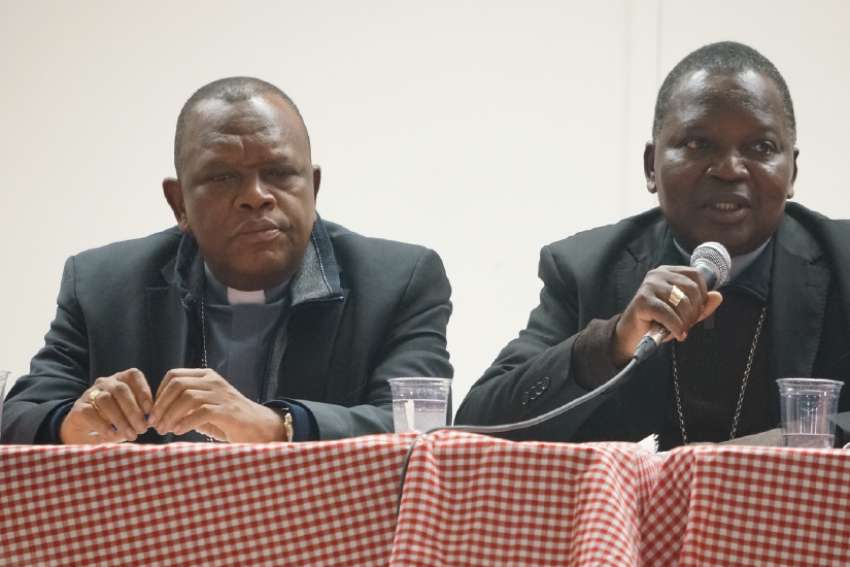Two delegates from the Bishops Conference of the Congo, known as CENCO, made stops in Ottawa, Montreal and Toronto during March to raise awareness of the political crisis in Congo that began in 2016 when the government of Joseph Kabila violently suppressed demonstrations calling for him to hold elections.
The bishops are mobilizing the people of Congo to put internal pressure on the government, but are asking Canadians to apply external pressure, Archbishop Marcel Utembi of Kisangani said in Ottawa on March 19 at a gathering organized by Development and Peace and Kairos Canada.
The people of Congo have lost confidence in the political class, he said, but the electoral and civic education that Development and Peace-Caritas Canada is providing with help from Canadian government funding has energized the people and given them a new confidence, said Utembi, who is also president of CENCO.
The Congolese are not the abused and afraid people they were 10 years ago, he said. Now, thanks to the education they are receiving, they are standing up to government oppression and have hope.
The vice-president of CENCO, Archbishop Fridolin Ambongo of Mdandaka-Bikoro and Coadjutor Bishop of Kinshasa, told the Ottawa audience of about 100 that CENCO helped broker a deal with the government in early 2017 to hold elections, but the deal was then ignored.
To apply internal pressure, the bishops have led people of all faiths in Congo to participate in three marches. The government responded with violence, using firearms on people who were walking peacefully holding bibles and attacking priests who were merely accompanying their people, said Ambongo.
But the internal pressure has shown signs of working to push the government towards holding elections.
Through pressure from the Americans, the government agreed to hold elections at the end of this year, though CENCO remains concerned about unreliable voting machines and the suppression of free expression, the bishop said.
The protracted political crisis has greatly hurt the Congo economy.
“We believe the interest of Canada to help the Congo is also helping Canada,” said Ambongo, who pointed out many Canadian mining companies operate in his country.
Helping the Congo create a “transparent legal framework” for the extraction of resources similar to that in Canada would “guarantee” Canadian investments, instead of the companies having to deal with a “dangerous” situation where the government cannot protect their interests, the archbishop said. It would also ensure the people of Congo get a fair share of the profits of extractive industries.
Utembi urged the Congolese diaspora in Canada to help, especially by showing their unity rather than allowing partisan interests from home to divide them here. In Canada, democratic values are not just something on TV, he added, and people who live here have freedom of expression
Ambongo urged continued support of Development and Peace’s civic education program, as well its help for women to become more autonomous. It is the moment of the Canadian government to come to the rescue of these women, he said, to help them take charge of their lives.


